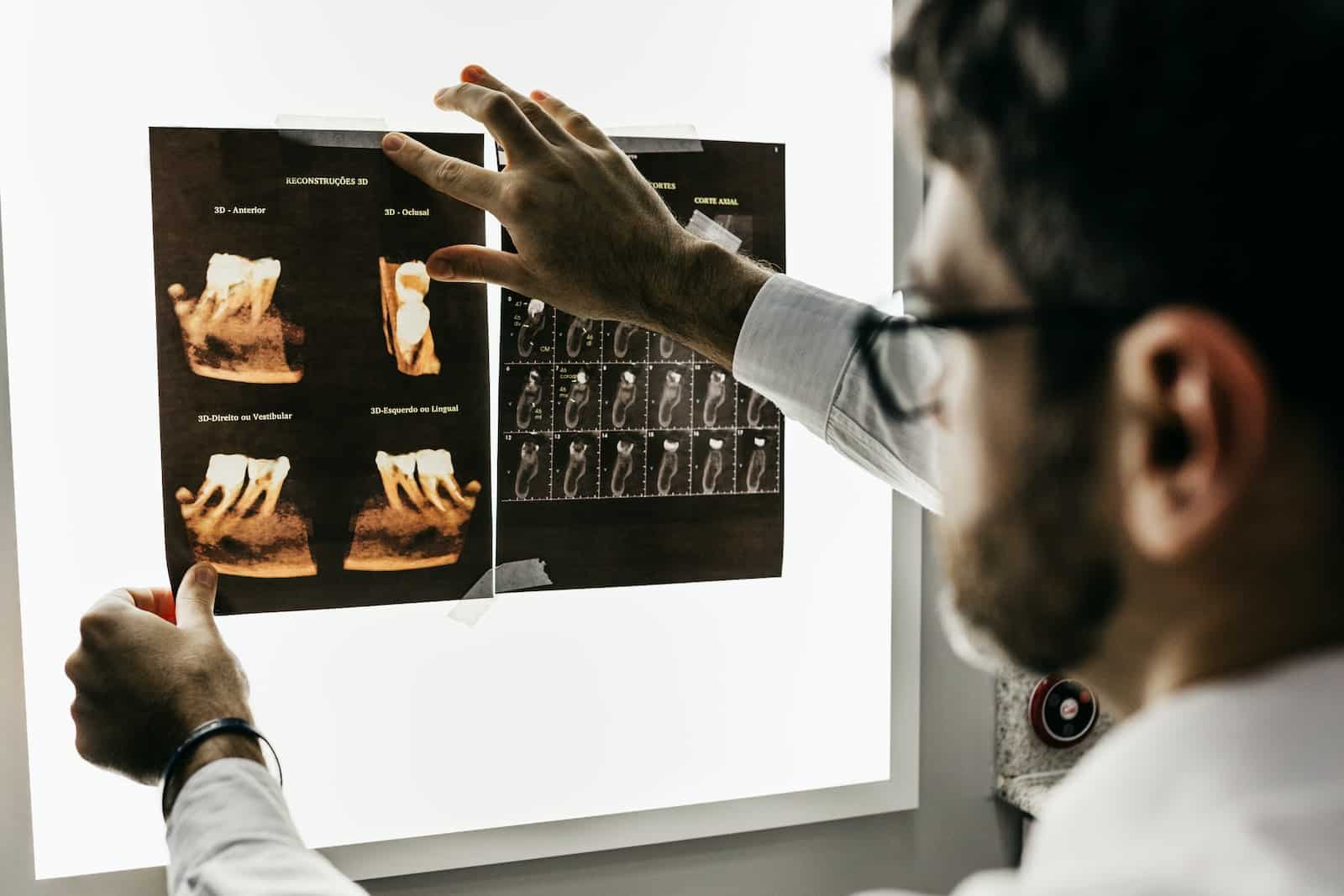Risks and Benefits of Wisdom Teeth Removal
This post may contain affiliate links which means I may receive a commission for purchases made through links at no extra cost to you. I only recommend products I truly believe in. Thank you for your support!

There are several reasons to get your wisdom teeth removed. These reasons include irregular eruption, cysts, damage to neighboring teeth, and infections. In addition, some people choose to get rid of them to improve their dental health. But before you make this decision, you should understand the risks and benefits of having your wisdom teeth removed.
Keeping wisdom teeth
While keeping wisdom teeth is often a desirable option, dental extractions may be better for your oral health. Your dentist will be able to explain to you why you should have them removed and what you can do to replace them afterward. Wisdom teeth can be painful and can cause gum inflammation and infections. By removing them, you will avoid these problems, and you will also avoid the need to use antibiotics.
Wisdom teeth can be partially erupting, or fully erupting through the gums. If they are partially erupting, they can be an attraction for bacteria and food, causing cavities. They can also cause pain in the jaw and can even cause cysts and tumors. If your wisdom teeth become infected, they can even infect the jaw bone. The infection can spread to the nearby teeth and cause chronic bad breath. This is why many people opt to have them removed.
Other disadvantages of keeping wisdom teeth include the risk of infection and periodontal disease. They can also erode the enamel on nearby teeth, making them difficult to clean. Furthermore, impacted wisdom teeth can crowd and damage the other teeth in your mouth. Also, they can cause other dental issues and increase your risk of cavities and tooth chipping.
Many people don’t realize how difficult it is to keep their wisdom teeth clean and healthy. However, it is possible to keep your wisdom teeth clean by using the right techniques and tools. You can also try irrigation, which helps clean partially-erupted wisdom teeth and remove bacteria that cause infection. Visiting a dentist for regular checkups is also essential.
Irregular eruption of wisdom teeth
If your wisdom teeth do not come in properly, you may benefit from having them extracted. The pressure of the impacted tooth can damage the neighboring teeth and create a painful situation. This can lead to tooth decay and gum disease. Furthermore, the impacted tooth may be difficult to clean and may cause recession around the adjacent tooth. Therefore, it is best to remove the wisdom tooth before it damages the critical second molars.
Visit your dentist for a consultation. The dentist can assess the situation and take an x-ray. The dentist can also reassure you that your wisdom teeth are perfectly normal and recommend a specialist if necessary.
If your wisdom teeth are not coming in properly, you may have two problems: an impacted tooth or a partially erupting tooth. The former is the most common problem, and should be removed as soon as possible. If your wisdom teeth are impacted, you may have a painful, throbbing tooth that is not fully erupting.
However, if the impacted teeth do not come in properly, you should still consider removing them. If you have an impacted wisdom tooth, you may suffer from a bad headache, pain in the jaw or bad breath. Luckily, the pain will usually disappear once the teeth come through.
Impacted wisdom teeth can cause cysts
Impacted wisdom teeth can cause cysts in their surrounding jawbones. Cysts are filled sacs that can grow to enormous sizes, destroying healthy jawbone tissue. They can affect adjacent teeth and change the shape of the face. In severe cases, cysts can result in tooth loss.
There are several treatments available for cysts in the jawbone. Some are less invasive than others, and may involve antibiotics or home remedies. Regardless of the treatment you choose, it is essential to consult a reputable dental professional for a diagnosis. Depending on the size and type of your cyst, the dentist may suggest a surgical procedure to remove it.
Cysts are not only painful, but they can also damage nearby teeth, jawbone, and nerves. In severe cases, the cyst may even grow into a tumor that requires surgical removal. Fortunately, most cases are benign. The main problem with impacted wisdom teeth is that they cannot be cleaned properly, and this can lead to tooth decay, cysts, and gum disease.
Impacted wisdom teeth can cause pain in the area of the impacted wisdom teeth. This pain can be a dull throb or a sharp ache. While the cause of pain varies, it often is a sign of an infection. The jaw is home to more than 700 types of bacteria.
Infections
If you have undergone oral surgery in order to remove your wisdom teeth, you may experience complications from infections after the procedure. There are several different types of infections that can occur. These include: anaerobic infections (bacterial infections), delayed-onset infections (infections that occur weeks or months after the procedure), and non-odontogenic infections (infections that occur only during the healing process).
Some of the common complications after extraction of wisdom teeth are: swelling, fever, and soreness. These symptoms generally start three to four weeks after the surgery. While infections after tooth extraction are rare, it’s important to note that they can happen. It’s possible for a small abscess to develop after the extraction. This can lead to tenderness and bad taste in the affected area. It can also result in persistent swelling. Your dentist may prescribe antibiotics to treat the infection.
After an infection occurs, you’ll have to stay on antibiotics to prevent it from spreading. The infection will most likely last for a few weeks. In the meantime, you can expect a small amount of pain for three to four days after the surgery. If the infection is severe, you may experience fever and chills, headaches, or nausea. Infections after wisdom teeth extraction can be a serious complication and can lead to more severe complications.
The infection may spread throughout the jaw, mouth, and respiratory system. In severe cases, it may lead to sepsis, which is a serious health condition. Fortunately, most dentists will remove the problem wisdom teeth at the first sign of trouble. If it’s severe, the treatment will depend on the severity and cause of the infection.
Damage to neighboring teeth
One of the main reasons why removing wisdom teeth is recommended by dentists is to prevent the development of decay. This also spares the patient from root canals and expensive fillings. Furthermore, impacted wisdom teeth can cause damage to neighboring teeth. In some cases, they can cause pain and inflammation. Moreover, if left untreated, they can cause dental misalignment.
Another advantage of removing wisdom teeth is that the procedure improves gum health. Infected teeth can lead to gum inflammation, which can lead to severe oral problems. Inflammation can also cause damage to neighboring teeth and gums. It can affect the nerves in the gums and may enter the blood stream.
Moreover, impacted wisdom teeth are more likely to develop cysts and tumors. These can cause serious pain and even require TMJ treatment. Additionally, impacted wisdom teeth are hard to clean properly, resulting in a buildup of plaque and cavities throughout the mouth.
Moreover, impacted wisdom teeth can also cause crooked and crowded teeth. This can lead to bone loss and increased risk of cavities. Also, impacted wisdom teeth can lead to cysts and tumors in the jaw, and can even lead to jaw joint problems.
In addition, removing wisdom teeth can prevent a host of oral health issues. The surgery can prevent infection, tooth decay, and discomfort. Also, it can reduce the amount of time a person will need to spend brushing and flossing their teeth. Wisdom teeth should be removed as soon as possible. This procedure can also prevent the need for corrective dental procedures in the future.
Nerve damage
The recovery from nerve damage depends on the type and extent of the injury, as different types of nerve fibers are able to transmit different kinds of sensation. The earlier a patient shows signs of renewed sensation, the better his or her chances are of a full recovery. However, it’s important to note that signs of renewed sensation can take weeks or months to appear, depending on the type of injury.
A dental procedure to remove wisdom teeth can be performed by either a dentist or an oral surgeon. Your doctor will decide which procedure is best for you based on various factors. During the removal process, the roots of the wisdom teeth can press on or wrap around the lingual nerve, which supplies feeling to the lips, tongue, and chin. By removing the wisdom teeth, the risk of nerve damage is greatly reduced.
There are also few risks involved with wisdom tooth removal. There is a small chance of nerve damage, but it is relatively rare. Ten percent of patients experience a dry outlet. However, this is a minor risk that can be treated easily. In addition to nerve damage, other risks associated with removing wisdom teeth include bleeding, numbness of the face, and infection. Depending on the level of complexity of the procedure, about one in 100 patients will develop permanent complications after the procedure. A local anesthetic is usually used for this procedure, but a general anesthetic may be needed in the worst-case scenario.
Nerve damage is a rare complication of wisdom tooth removal. Most cases are mild and confined to the tongue and cheek area. Nerve damage can result in altered sensation or total loss. This abnormal sensation is known as paresthesia. Paresthesia may be accompanied by tingling, numbness, or pins and needles.
Pain
If your dentist removes your wisdom teeth, you may experience some pain after the procedure. It’s normal to experience some throbbing pain after extraction, and then mild to moderate ache. A few days after the procedure, it’s advisable to eat soft foods and keep your mouth closed. After a few days, however, the pain should gradually subside. A small amount of swelling may remain. To minimize this, you can take ibuprofen and other pain relievers.
After the surgery, you should avoid drinking alcohol or carbonated drinks, and you should apply an ice pack to the area. It’s also a good idea to drink plenty of water. You should also avoid caffeinated, hot, and alcoholic beverages. It’s also a good idea to avoid sucking on a straw, which can dislodge blood clots and irritate the site.
If you’re experiencing pain after wisdom teeth extraction, you should take over-the-counter pain medications. Your dentist may also prescribe stronger pain medications if necessary. Ibuprofen, also known as Motrin or Advil, should be taken about 400-600 mg every six to eight hours. The medication will alleviate the pain and reduce swelling.
If you’re experiencing extreme pain after wisdom tooth removal, it’s best to contact your dentist immediately. Not only will he be able to give you specific post-operative advice, but he can also determine if your wisdom teeth removal procedure caused a more serious condition and need immediate treatment.



